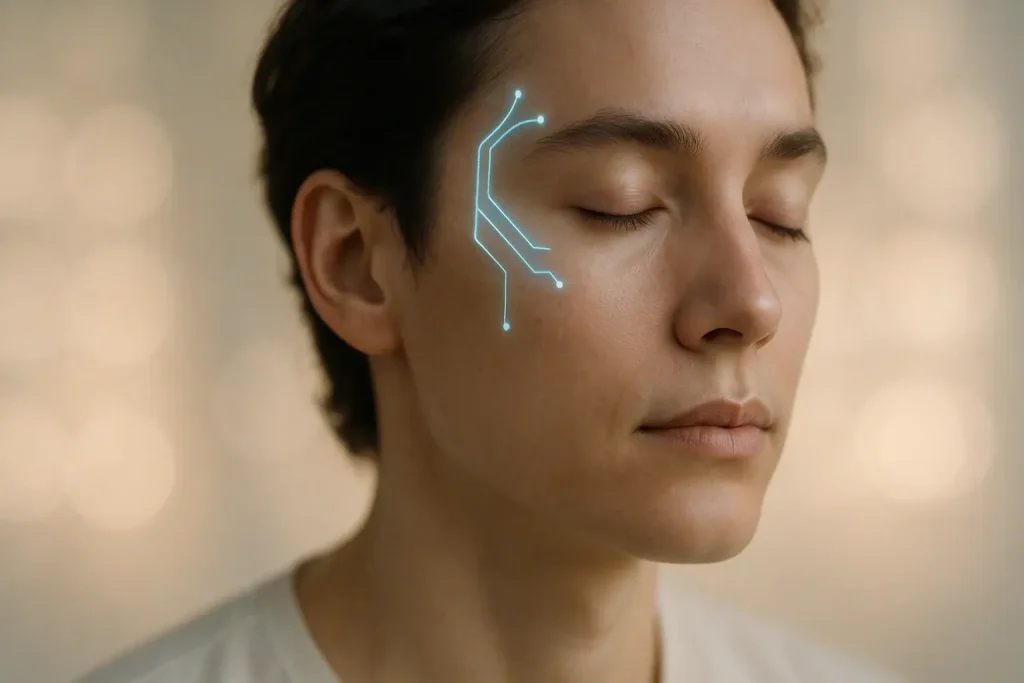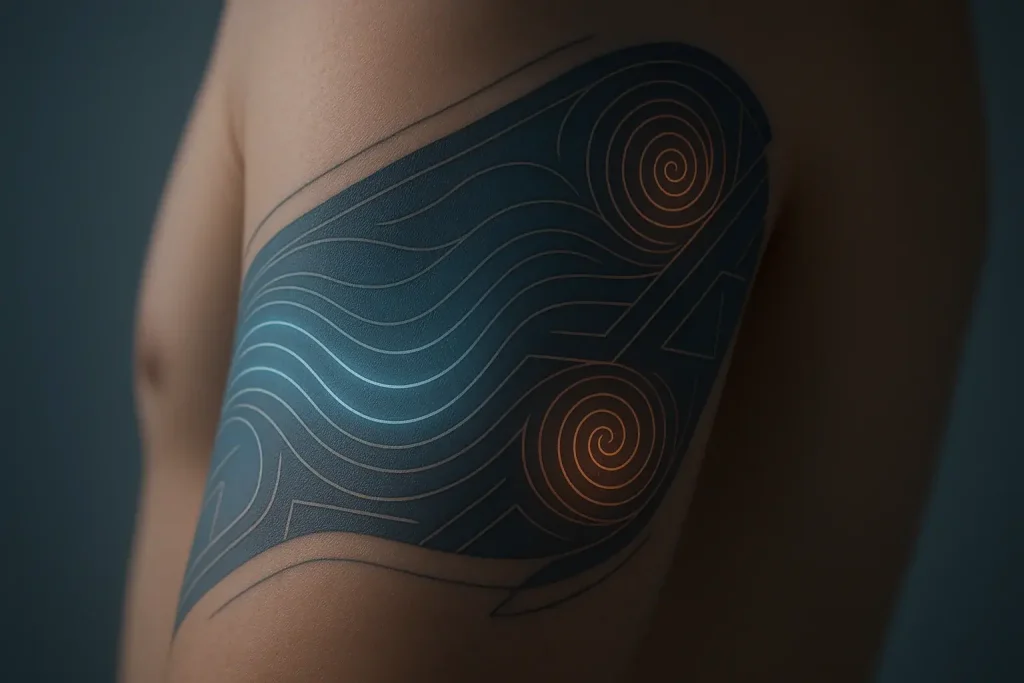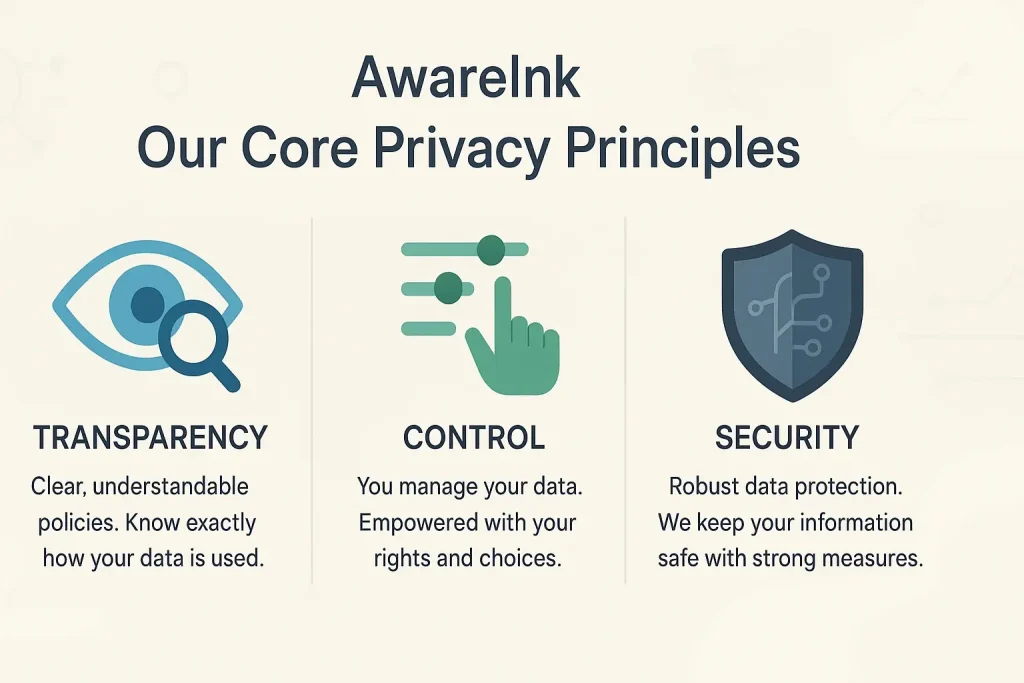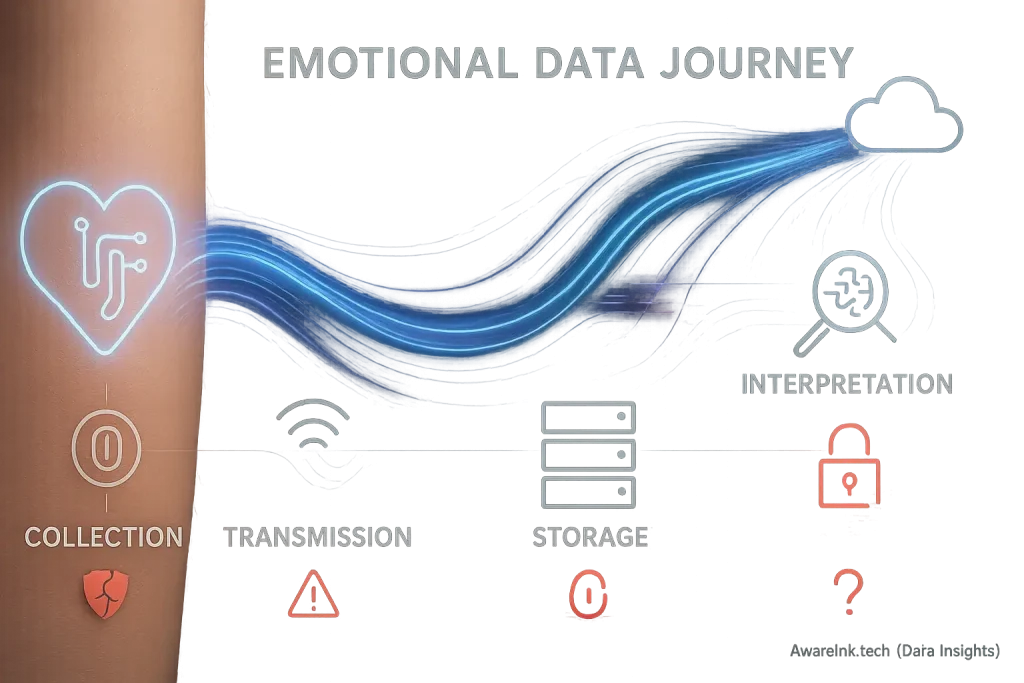The Weight of Knowing: Is Constant Mood Data a Blessing or a Burden?

Imagine seeing your emotional landscape fully revealed. Sounds freeing, doesn't it? Yet, what if that constant reflection becomes a mirror you cannot avoid? Mood-adaptive smart tattoos offer the promise of deep personal insight. AwareInk's analysis of potential user interaction patterns suggests these devices also bring a distinct 'weight of knowing', a critical consideration often overlooked in initial enthusiasm.
Continuous mood monitoring, the core function of these smart tattoos, presents a clear duality. One side reveals remarkable potential for enhanced self-understanding and personal growth. The other side, however, can introduce unexpected psychological challenges. Our synthesis of emerging human-technology interaction studies indicates this technology acts as a double-edged sword, demanding mindful engagement from the user.
This resource explores several key areas of this complex dynamic. How might heightened self-awareness inadvertently fuel anxiety? The risk of obsessive tracking of emotional data is another significant factor. We also examine the potential impact on genuine, spontaneous emotional expression. AwareInk aims to provide a balanced, evidence-informed perspective, empowering you to weigh these considerations.
Increased Self-Awareness: When Insight Becomes Over-Analysis
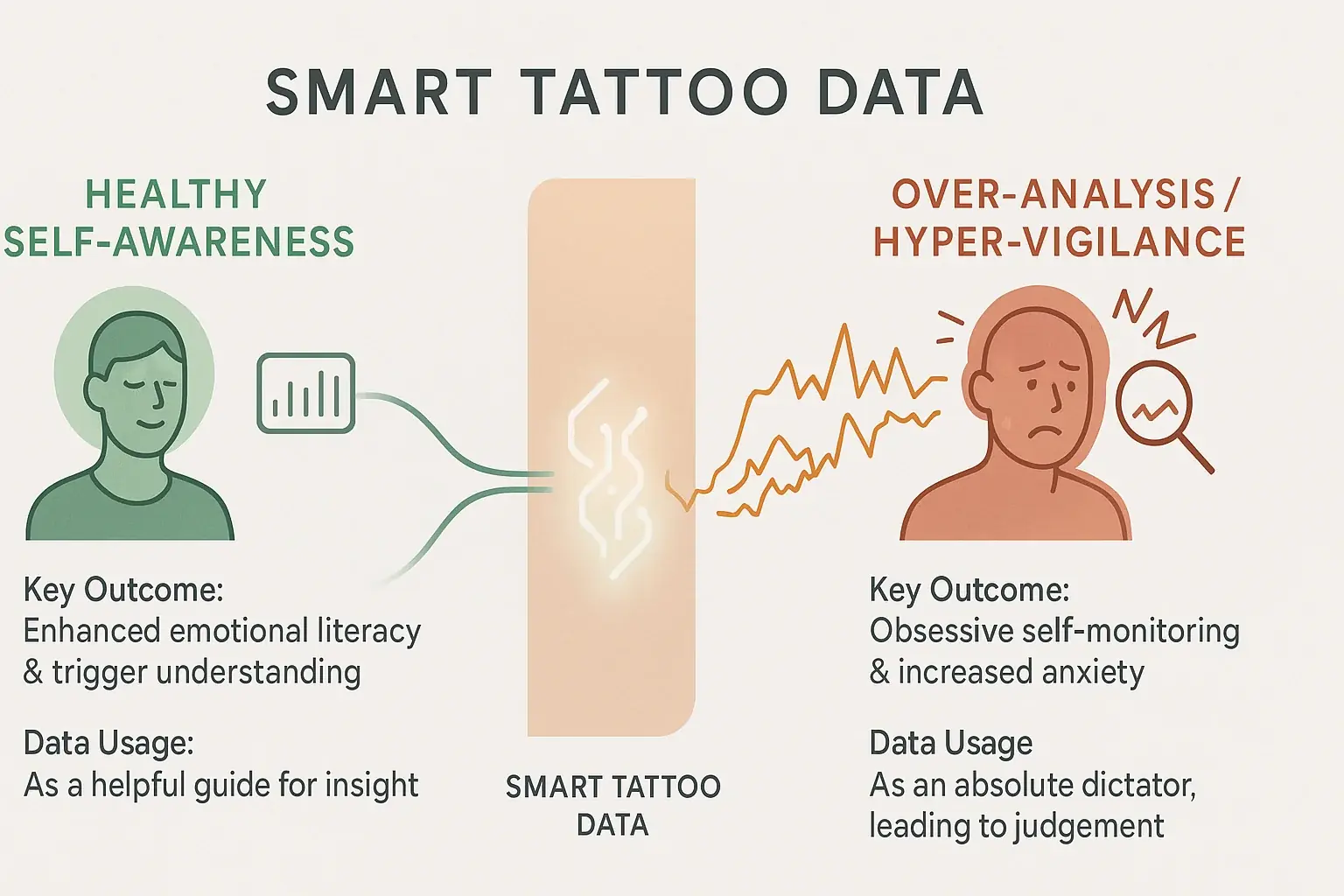
Many users seek smart tattoos for this very reason. They desire a clearer window. They want insight into their inner world. This technology helps recognize subtle emotional shifts. It aids understanding personal triggers. Emotional literacy often grows. Imagine finally understanding why that afternoon slump consistently brings a wave of irritability.
But a potential downside exists. The very tool designed to illuminate sometimes casts a harsh, unforgiving light. Many users discover this truth. Users might find themselves constantly checking their tattoo. They dissect every flicker of color. Each pattern becomes a source of intense focus. Healthy introspection then transforms. Obsessive self-monitoring might begin.
This intense focus often fosters hyper-vigilance. Hyper-vigilance generates a new type of anxiety. This becomes a significant challenge for some users. Instead of simply feeling an emotion, you might start watching yourself feel it. You could constantly judge the incoming data. Thoughts might spiral. 'Why am I feeling this? Is this reaction normal? My tattoo signals stress, but I thought I was perfectly fine!'
What is the key to balance? Use the tattoo's data as a helpful guide. Do not treat it as an absolute dictator. AwareInk.tech's analysis suggests a path: learn from emerging patterns. Then, consciously put the device aside. Trust your own developed intuition. A truly mindful approach successfully integrates technology with essential self-compassion.
The Compulsion to Quantify: When Tracking Becomes Obsessive
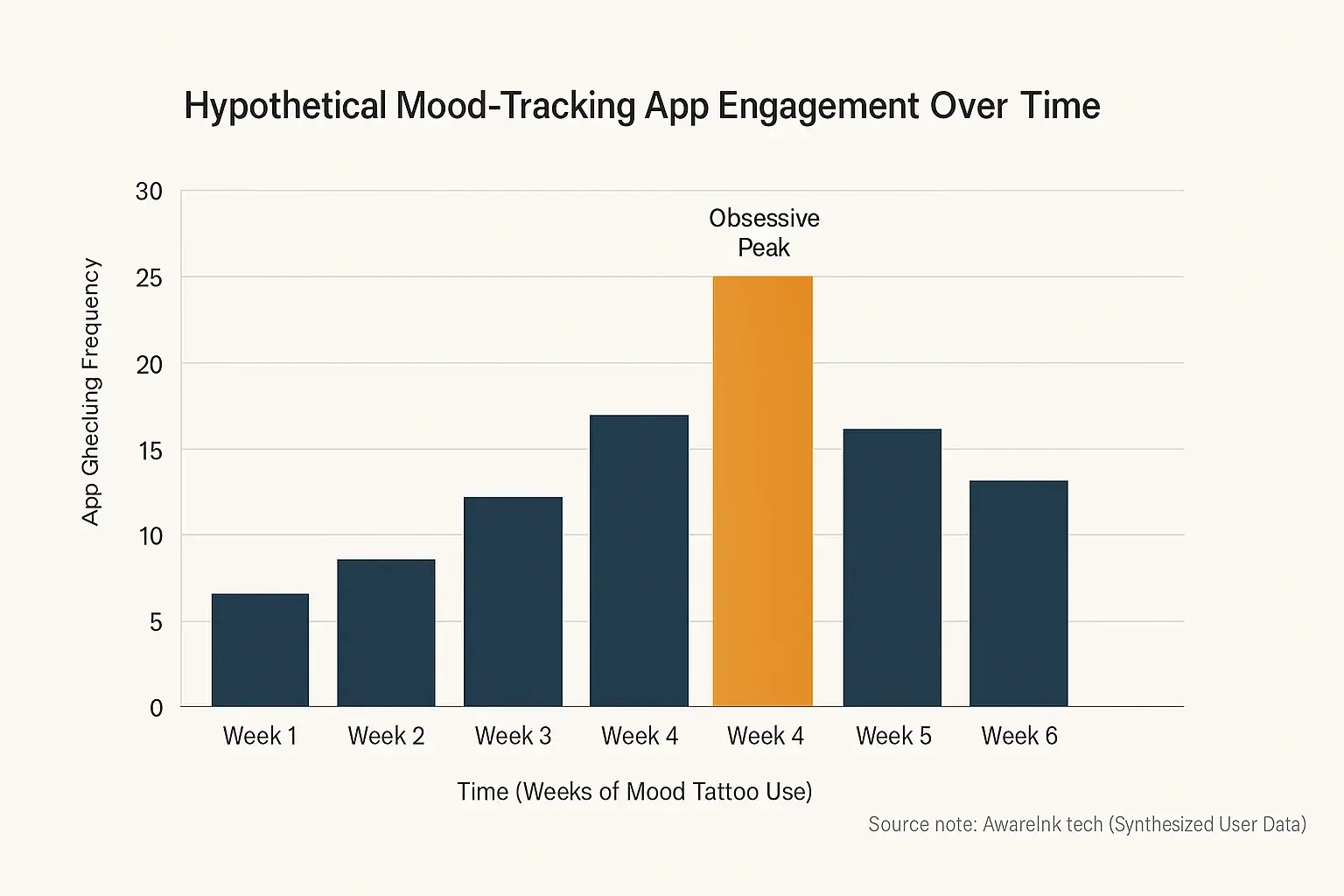
People often embrace data. Data feels objective, scientific; it appears to tell a 'truth.' This desire for data can foster compulsion. Mood tattoos provide information but can trap users in an obsessive tracking cycle.
Imagine constantly refreshing the companion app. Users might scrutinize every subtle shift in color or pattern. 'Is my mood 'good' enough? Why is my anxiety not decreasing? What does this spike mean?' This endless checking loop creates more stress than it alleviates, turning a tool into a tormentor.
This obsessive data focus can detach you from your real, lived emotional experience. You might analyze 'sadness data' instead of experiencing sadness. It becomes like watching a movie of your feelings, not being in them. AwareInk's analysis of early wearable tech adoption shows this detachment hinders emotional processing and can erode resilience.
Users can avoid this pitfall. Set clear boundaries for technology use. Decide when and how often to check data, using it as a snapshot, not a constant report. The aim is insight for well-being, not data-driven obsession.
The Performance of Feelings: How Mood Tattoos Might Alter Authenticity
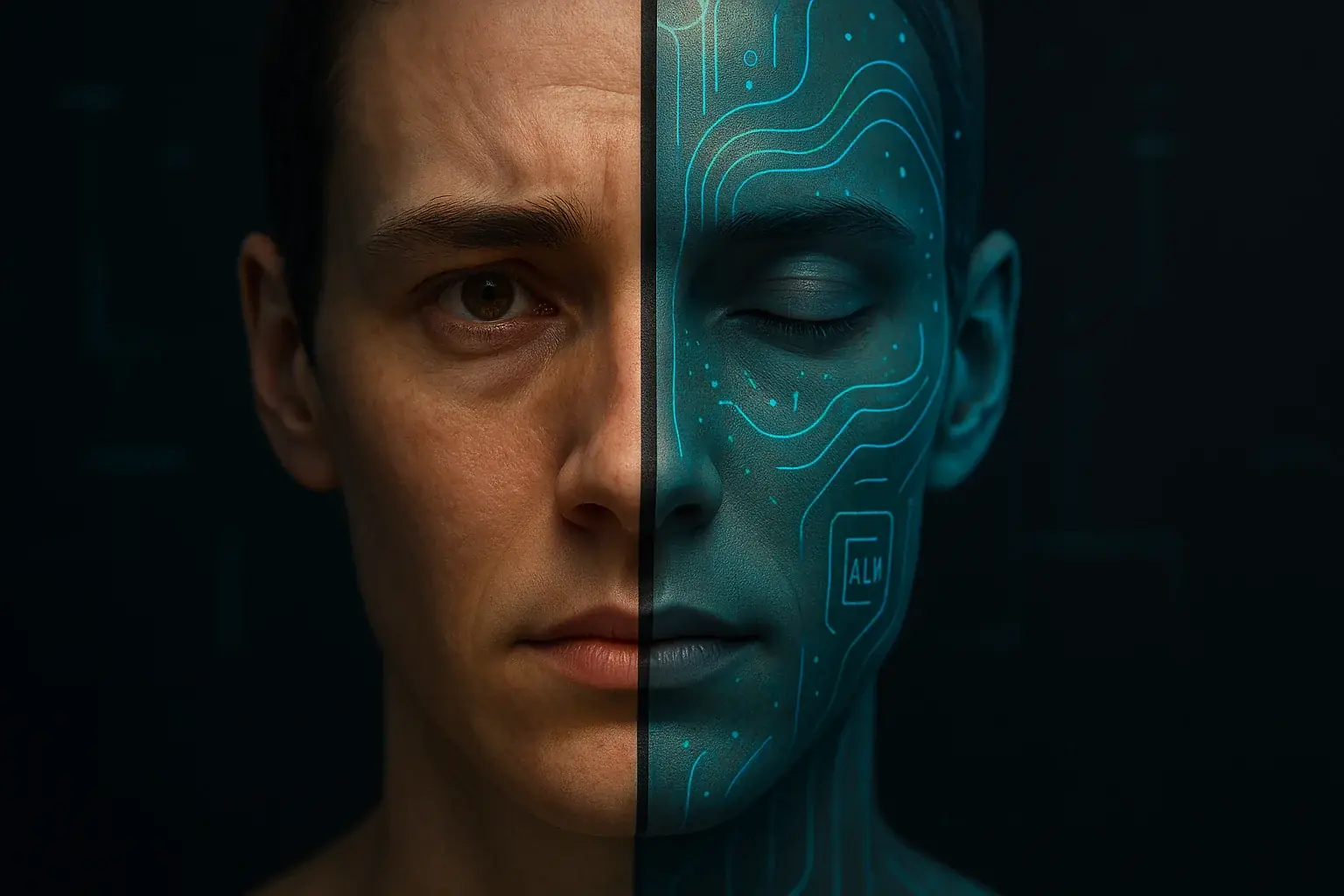
Your inner state could display on your skin, subtly or overtly. Mood tattoos promise this direct visibility. But what happens when our feelings become a public performance, even if only to ourselves?
Users might unconsciously self-censor true emotional responses. AwareInk.tech's research points to this subtle pressure. Your tattoo indicates 'stress' during an important meeting. Do you then attempt to suppress that visible sign? Does this fear of 'displaying' an unwanted emotion lead to actual emotional suppression? Healthy processing gets bypassed. This behavior can create a disconnect from authentic feelings.
We might start 'performing' emotions for our tattoo. Or we perform for others who might see it. A person could think, "My tattoo says I am calm." Then: "So I must be calm." This pattern is not genuine emotional regulation. It is a new form of self-deception. AwareInk.tech sees this as a core 'unspoken truth' of such technology. The focus shifts from truly feeling an emotion. It moves to outwardly presenting a 'correct' emotional state.
Wellness technology's goal must enhance our authentic self. It should not diminish it. Use mood tattoos to understand your feelings. Do not use them to police your feelings. True emotional intelligence embraces the full spectrum of human experience. It values authentic experience over just 'acceptable' data points. AwareInk.tech advocates this crucial perspective.
Outsourcing Your Inner World: The Risk of Tech Dependence for Emotional Insight

Smart tattoos offer an easy mood 'read'. Convenience has a cost. This cost impacts your innate self-understanding. We risk outsourcing our emotional intuition. A profound shift.
AwareInk's research projects a concerning pattern. A user's internal emotional compass can weaken. Individuals might then ask: 'What does my tattoo say I feel?'. This inquiry replaces the direct 'How do I feel?'. Such reliance hinders crucial introspection skill development. External validation for internal states then becomes the norm.
This technology dependence can foster emotional fragility without the device. Imagine anxiety. The tattoo does not confirm this feeling. You then doubt your own direct experience. The shift is subtle: 'I feel' becomes 'My tech reports I feel'.
Smart tattoos are powerful tools. They should assist your journey of self-discovery. They must not replace it. True value emerges from using their data to deepen your introspection. This process involves connecting your body's signals with your inner world, even tattoo-free.
Navigating the Inner Landscape: Mindful Engagement with Mood-Adaptive Smart Tattoos

Mood-adaptive smart tattoos offer a fascinating glimpse, illuminating your inner world. These devices can be powerful allies for self-awareness and genuine well-being. Constant emotional data presents specific challenges. Mindful engagement is the essential antidote. This is your key.
The journey with mood tattoos reveals potential turns: insight can become over-analysis, tracking may foster obsession. Authenticity itself might feel questioned by this continuous emotional feedback. These realities are not dismissals of the technology; they are crucial invitations to think critically. They compel a proactive stance towards your complete mental well-being.
AwareInk.tech’s core mission is to empower you with clarity. Use your smart tattoo to deepen self-understanding, never to replace your precious human intuition. Embrace the insights from data, but always prioritize and trust your inner wisdom. That balanced path leads to integrated well-being in our evolving tech-infused future.
